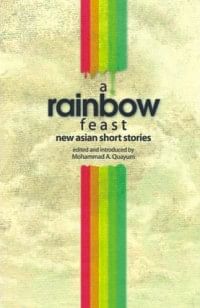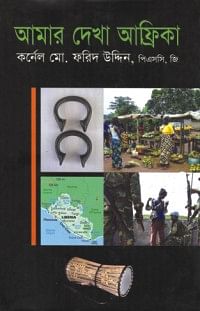| Home - Back Issues - The Team - Contact Us |
 |
| Volume 10 |Issue 21 | June 03, 2011 | |
|
|
Book Review When Time's a goon Nameera Ahmed Our Man in Asia Though as schoolchildren we learned in geography class that Asia is a continent, the biggest of the half dozen whose names had to be learnt by heart, our conception of it tends to be rather vague and indeterminate. Where is the border between Asian Russia and European Russia? If Turkey, on the strength of its toe-hold across the Bosphorus, can claim to be European, can Sinai drag Egypt into Asia? I believe the Asian Games are held regularly, and we host an Asian Biennale, but there is no pan-Asian forum comparable to the Organization of African Unity (OAU) or the Organization of American States (OAS), not to mention the European Union (EU). Better take a slice of this super-continent at a time: and so we have ASEAN and SAARC the latter, alas, seemingly a non-starter.
Non-Asians are equally disoriented, and like the proverbial blind men mistake a part for the whole: to Brits an Asian is a Southasian, a Paki; to an American an Asian is ethnically Mongoloid. And yet, there are times when Asian in the broader sense is just right: in 1990, during a two-month stint at the Goethe Institute in Berlin I was billeted in a flat with two youths, a Turk and a Japanese who over drinks exclaimed ecstatically, 'We three are children of Asia!' That moment was a minor epiphany. Do we need to go out of Asia to become aware of our Asianness? Perhaps. Perhaps too, it helps if we are at a geo-political median position. And that, I believe, is in and around Singapore that includes Malaysia, whose very name incorporates that of our continent. Some years ago a volume of Asian Prize Stories published from Singapore came into my possession, one of an annual series of contest-winning compositions. I recall it had a story by Niaz Zaman. Needless to add, it wouldn't occur to anyone in our country to sponsor an Asian story-writing contest. Nor would our cultural ambience foster the conception of an Asian story anthology. However, it so happens that the editor of the anthology under review is from the Bangladeshi heartland Faridpur in fact. Educated at the universities of Dhaka and Flinders, he taught for some years at Dhaka and Chittagong universities before going diasporic along with his family. He has since taught at Nanyang University, Singapore, and the International Islamic University in Kuala Lumpur, and put in a brief visiting professor's stint in America. He edits a quarterly journal significantly titled The Asiatic. As author, editor or translator Quayum has put his name on over a score of book covers. His long years in Singapore and Malaysia provide him with the appropriate perspective to take in Asia, the whole continent and not just a part of it. He is, one might say, our man in Asia. (Re)introducing Asia The part of the anthology that I have read with the most interest is Quayum's 15-page introduction. He writes about the historical circumstances that have given the English language an ineluctable role in Asian life, sketches the development of Anglophone writing in the continent, and argues that English can, should and will continue to play a positive role in our practical and cultural spheres. Unsurprisingly, India occupies centre-stage in the discussion, since it is unquestionably the leading producer of Anglophone writing among Third World nations. A lamentable concomitant of this is that writing from the smaller countries of the subcontinent receives scant attention. I can think of only three anthologies of Southasian writing: Stories from South Asia, edited by John Welch (OUP, 1985); Post Independence Voices in South Asian Writings, edited by Malashri Lal, A. Hashmi and Victor Ramraj (Delhi: Doaba, 2001; and The New Anthem: The Subcontinent in its Own Words, edited by Ahmede Hussain (Delhi: Tranquebar, 2009). There is an industry churning out studies of Indian English writing, but hardly any of Southasian writing. I suppose Pakistanis, Bangladeshis, Sri Lankans and Nepalis are each expected to have their own critical forums. This amounts to a partitioning of the mind, a denial of the region's civilizational unity, which of course encompasses rich diversity. This is in stark contrast to the situation in Africa and the Caribbean, where everyone writing in a shared language, whether English or French, is taken to belong to the same family. It is easy to locate anthologies and critical studies of African or Caribbean writing; and Heinemann has long published the highly successful African Writers Series and the Caribbean Writers Series. An Asian Writers Series did see the light of day, but no sooner was it launched to wide acclaim, one might add than it was unceremoniously abandoned; heaven knows why. Quayum salutarily delineates the various branches of the Asian tradition of Anglophone writing, including some that could be described as fresh sprays. Outside South Asia the countries notable for Anglophone writing are, naturally, the former British colonies of Singapore and Malaysia, and the Phillipines, which has adopted English through its American connection. Quayum's selection includes nine stories by Asians (two each from India and Pakistan, one each from Bangladesh, Singapore, Philippines and Laos) who are American, British or Australian citizens. One is by an American citizen who is a Guyanese of Indian origin. Three are by Indians who have settled in Singapore or Malaysia. Of writers who acknowledge single citizenship, three are from Bangladesh, two each from India and Singapore, and one each from Malaysia, Taiwan and Vietnam. There is even a lone American who has settled in Japan. Diaspora themes are conspicuous, even among those who hold single citizenship. Clearly, this is not what one would normally expect in an anthology that labels itself Asian. The preponderance of expatriate writers and 'multicultural' or diaspora themes tells us something about the rapid changes taking place in the globalised world. Still, one cannot accept that this selection is representative of the best of new Asian short stories. Part of the trouble no doubt lies in the method of selection. A call was sent out asking for unpublished stories within a five-month deadline. 140 submissions were received, of which 24 were chosen. It was not a wise thing to do, but given the constraints one has to acknowledge that the stories show diverse writers trying to deal with themes, issues, situations and problems that concern us all. Our Heroes in Africa An in-depth account of peacekeeping in the Dark Continent throws light on the lives in blue helmet AHMEDE HUSSAIN
Bangladesh's contribution to the world of peacekeeping is more than two decades old. Our men (now also women) in olive have been successfully upholding peace across the world and have so far made the nation proud. The success, like any accomplishment in life, has come at a price, and heavy surely it is. Our boys laid down their lives in unknown, inhospitable terrains in Asia, Africa and in the Americas. A grim warning to those who dare, that being a peacekeeper is indeed a risky job, and members of Bangladesh Army, Navy, Air force and Police have never shied away from living up to the challenges that peacekeeping in the new millennium has thrown at them. A country in Africa has made Bengali its state language, and in places as far away as Haiti and Liberia, the name Bangladesh is recalled with pride, gratitude and honour. So much indeed for a country that has otherwise been famous for flood, food shortage and famine. The lives of our boys in blue helmet would have remained unknown had not some army men tried their hands at writing. One has been "The Peacekeeper", a passionate, fluid novel by Major Shabbir Ahsan, another is a personal account plus a guide to Africa by Colonel Md Farid Uddin, psc, G, who was sent on a UN Peacekeeping Mission a few years ago. The first part of Col Farid's book reads like a memoir, and partially that is what it is; his words are as short and swift as a string of African arrows and his sentences give the readers this impression that they are taking a glimpse at a private life. The first half covers more or less everything a peacekeeper has to go through before he starts his job; it literally starts from the moment before boarding the plane. As the book progresses, it starts to encompass wider issues: a certain kind of fever that plagues the continent, Cape Coast Castle in Ghana…Col Farid, like British Prime Minister and novelist Benjamin Disraeli who is quoted at the beginning of the book, has seen more than he remembers, and remembers more than he has seen. The second half is an encyclopaedic narration of the countries in Africa. It has history of Africa and a detailed account of West Africa and its demography. The book talks about the four countries on the western coast of Africa. An example of how minute Col Farid can get: "A kind of pepper called Melegueta pepper used to be found in Liberian capital Monrovia and its surrounding areas. European traders brought them to Europe. In the European countries these peppers were in high demand. It is also called the Grain of Paradise." Also read: "A demand for slaves increased a lot between 1680 and 1750. According to historians, around 20-30 lakh slaves were sent to the New World through the slave coast…The seaports through which the slaves were sent are: Ouideh, Lagos, Little Popo, Agoue, Jakin, Porto-Novo and Badagry." The last chapter of the book (As I have seen Liberia) deals with the politics and recent tempestuous history of the country which made the presence of the UN in Liberia a necessary. The chapter starts with the meaning of Liberia in Latin and ends with the number of livestock in the West African nation. An incident narrated in the book that will make any Bangladeshi proud: During the Liberian civil war, many refugees from the country took shelter in neighbouring Ivory Coast, of them was Peter Va. So moved was he by the help of Bangladeshi peacekeepers that he named his newborn Bangladesh Va. It is a part of African custom to name one's newborn by the name of one's close relations and Peter considers Bangladesh his family. Africa is brimming with potentials, both economic and diplomatic, and it is time we use our goodwill to cash in on these opportunities. The Bangladesh government has taken some initiatives to lease land in Africa and start farming to meet food shortages. If successful, it will surely be a contribution of our soldiers who are upholding the flag of peace and the nation's honour in the war-torn continent. Col Farid's book has made us believe again that valour and courage still exist in the sole of Bangladeshi soldiers. Our men in uniform should write more on their lives abroad; when it comes to the nation and its pride, the louder you beat the drum the better.
Copyright
(R) thedailystar.net 2011 |

